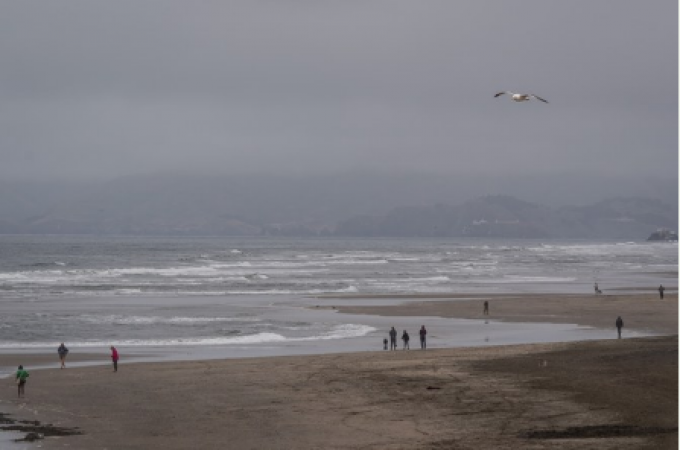
Singapore: Climate experts warn that despite months of record-breaking heat on land and sea, nations have failed to set more ambitious goals, making the goal of limiting long-term global warming to 1.5 degrees Celsius (2.7 Fahrenheit) increasingly out of reach.
Average global surface air temperatures were more than 1.5C above pre-industrial levels for several days as envoys gathered in Bonn in early June to get ready for this year's annual climate talks in November, according to the EU-funded Copernicus Climate Change Service (C3S).
Although mean temperatures had previously briefly exceeded the 1.5C mark, this was the first instance of it occurring during the northern hemisphere summer, which begins on June 1. Also breaking records in April and May were sea temperatures.
Also Read: Lavrov: Ukraine's Zaporizhzhia Nuclear Plant Engaging in 'Dangerous Game
Because change takes time, Sarah Perkins-Kirkpatrick, a climatologist at Australia's University of New South Wales, declared, "We've run out of time."
Extreme heatwaves have hit the United States, and temperatures in Beijing, the capital of China, broke June records as climate envoys from the two largest emitters of greenhouse gases get ready to meet next month.
This month, temperatures in some parts of North America were about 10 degrees Celsius above the seasonal average, and hazardous haze from forest fire smoke covered the US East Coast and Canada. Carbon emissions are thought to have reached a record high of 160 million metric tonnes.
Also Read: Bishop claims that some Britons are only concerned with "brown" immigrants
Extreme heat has been recorded in Spain, Iran, and Vietnam, and reports of a spike in deaths in India, one of the most climate-vulnerable countries, have led to concerns that the deadly summer of last year may become the norm.
The World Meteorological Organisation predicted in May that there is now a 66 percent chance that the annual mean will cross the 1.5C threshold for at least one full year between now and 2027. Countries agreed in Paris in 2015 to try to keep long-term average temperature rises within 1.5C.
Sea surface temperatures have matched the high temperatures on land, with warming being accelerated by an El Nino event and other factors.
Late in March, the global average sea surface temperature reached 21C, and it has stayed there ever since, setting new seasonal records for April and May. Australia's weather service issued a warning that by October, sea temperatures in the Pacific and Indian oceans could be 3C warmer than average.
According to Piers Forster, a professor of climate physics at the University of Leeds, global warming is the primary cause, but El Nino, a decrease in the amount of Saharan dust blowing over the ocean, and the use of low-sulfur shipping fuels are also to blame.
Overall, he said, "oceans are being hit by a quadruple whammy." "It portends bad things,"
Numerous dead fish have been found washing up on Texas beaches, and sea lions and dolphins in California have also perished as a result of heat-induced algal blooms.
According to Georgia Institute of Technology climatologist Annalisa Bracco, warmer seas may also result in less wind and rain, which would feed the cycle of increased heat.
The "perfect combination" of circumstances that led to this year's high sea temperatures, but the ecological impact might last for some time, she said.
The ocean will react very slowly because it accumulates heat gradually but also retains it for a very long time.
According to climate experts, there has been an increase in the severity and frequency of extreme weather events this year, including deadly cyclones in Africa and the world's most severe droughts.
The Worldwide Fund for Nature, however, expressed concern about a "worrying lack of momentum" during this month's climate talks in Bonn, noting that little progress had been made in advance of the COP28 climate talks in Dubai on important issues like fossil fuels and finance. Li Shuo, a senior climate adviser for Greenpeace in Beijing, expressed her disappointment by saying, "It was very detached from what was going on outside of the building in Bonn."
Also Read: Putin claims that desecration of the Qur'an is a crime in Russia while visiting Dagestan
"We are truly approaching the turning point... I'm hoping the reality itself will influence people's decisions and alter politics.
Although few anticipate that John Kerry's visit to Beijing will give the climate negotiations more traction, talks between the US and China may resume the following week.
"This is more of a trust-building exercise," Li said. "The politics won't allow it, but I don't think either side will be able to push the other side to say much more than they are willing to do." (Editing by Jamie Freed; additional reporting by Ali Withers from Copenhagen and Gloria Dickie from London.)